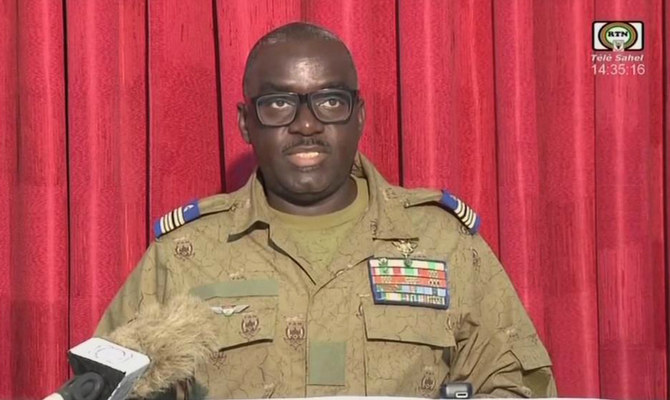Alwaght- Niger's government announced on Saturday that it was breaking off "with immediate effect" its military cooperation agreement with the US.
The statement came just a day after a senior US delegation left Niger, following a three-day visit to renew contact with the military leaders that ousted the president in July last year.
Speaking on local television, ruling military spokesman Colonel Amadou Abdramane said the US delegation did not follow diplomatic protocol, and that Niger was not informed about the composition of the delegation, the date of its arrival or the agenda.
“Niger regrets the intention of the American delegation to deny the sovereign Nigerien people the right to choose their partners and types of partnerships capable of truly helping them fight against terrorism,” Abdramane said.
The statement said the government had decided to "denounce with immediate effect" the agreement relating to US military and civilian employees of the US Department of Defense inside Niger.
US State Department spokesman Matthew Miller said Washington was aware of the statement.
The United States still stations some 1,000 troops in Niger at a desert drone base built at a cost of $100 million.
The move was described by Aljazeera correspondent in Washington "a blow" to Washington.
"Niger is the centre of US operations in west and north Africa, notably at its Air Base 201, the most expensive construction project ever undertaken by the US government. It’s there for war on terror operations but it’s really there also for great power projection against countries like Russia and China," Aljazeera's Shihab Rattansi said.
Post-coup Niger has been building closer ties with Russia and China while breaking up with the West.
In September, coup leaders ordered the police to expel the French ambassador. In December, they expelled the military forces that for decades have been stationed in the country.
On the other side, since the coup, several analysts have highlighted the role of Russia. Some analysts and regional experts believe Russia might have played a role directly or indirectly in the military takeover.
Others argue that Russia is increasing its grip on the country and actively seeking to benefit from the coup. This was evident when Russia and Niger recently agreed to develop military ties.
Although the details of this partnership are still sketchy, Russia promised to increase the “combat readiness” of Niger’s military. In addition, there are discussions to partner in the areas of agriculture and energy.
After the 2023 coup, France and the regional economic bloc ECOWAS threatened to use force to reinstate the deposed president, but Russia warned against such a move.
For its part, Russia was positioning itself as a reliable ally. In December 2023, a Russian delegation visited Niger and in January 2024, Niger’s Prime Minister Ali Mahamane Lamine Zeine visited Moscow to discuss military and economic ties.
Russian military advisers have been operating in Mali, Burkina Fusso, and Niger is the latest area of Russian partnership with Africa.
While Russia's main benefit from Niger is geopolitical, China focuses on trade and energy ties for its partnership with Niger. The country invests in the refineries of Niger.
A lot of Chinese investment comes from PetroChina — the commercial arm of state-owned oil company CNPC — which has sunk billions into building the country’s major oil refineries and exploring its oil fields, with the hope of a share of all revenues. It built Niger’s oil industry single-handedly, when it began drilling in the Sahel in 2008 taking over after Western companies abandoned their own projects as too costly and perilous.
Chinese civilians that were evacuated from Niger in the wake of the coup returned shortly later and Chinese-operated projects resumed work.



























